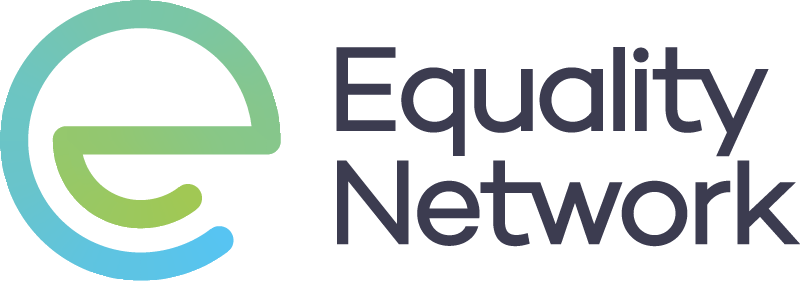


We can think about intersectionality in many different ways. Many people have spoken and written on the subject. Another angry woman writes that being a person with an intersectional identity is like standing in the middle of the road being hit by cars from many sides. Roshan das Nair speaks about his birthday party as being in the middle of many different circles of friends and family who seldom overlap. In many ways we ALL feel like both of these descriptions at different times. We all have different aspects of our identities. We all have different sides of ourselves. But we are not all protected by UK law in the same way.
A gay man has to deal with homophobia. A black man has to deal with racism. But a black gay man will have to deal with homophobia and racism (often at the same time). It is often the case that he will face racism inside the LGBT community and homophobia in the black community.
Similarly, a disabled lesbian Muslim will have to deal with ableism, homophobia, Islamophobia, racism and sexism. She might find physical barriers to accessing LGBT venues, but even when she can get into the building she might still face racism and Islamophobia from the white LGBT community.
Having an intersectional identity often generates a feeling that someone does not completely belong in one group or another, and can lead to isolation, depression and other mental health issues.
The exclusion and erasure of intersectional people from our communities is reflected in service provision. Often LGBT-focused organisations have little knowledge of, for example, race issues. This can lead to racist attitudes and practices carried by staff and other service users remaining unchecked, thus creating an unsafe space for a minority ethnic LGBT person who wants to access the services.
Our intersectional work is aimed at helping organisations become more inclusive of all their service users and respect every part of their identity. We work with a variety of organisations with diverse expertise, exchange awareness-raising sessions, and speak to intersectional service users. This extensive partnership work reveals that there are many ways to be inclusive without spending any extra money and that learning to be inclusive of people with complex identities benefits every service user.
We provide both bespoke and general training sessions for organisations on how to better include intersectional LGBTI people in services.
Our guidance for service providers includes an easy to follow list of key principles, a self reflection quiz and a film of personal testimonies which are all available to view and download on the link below.
Out to Access was Scotland’s first funded project that focused on the intersections of disability with gender identity and sexual orientation. The project ran between 2011-2012 in partnership with Inclusion Scotland and Glasgow Disability Alliance (GDA), and was funded by the Scottish Government Equality Unit.
The project promoted the inclusion of Disabled Lesbian, Gay, Bisexual and Transgender (D/LGBT) people in services through community champions, action groups, training and research.
Our Putting the Pieces Together report can be downloaded here.
EveryoneIN was Scotland’s first funded project that focused on the intersections of race and religion with gender identity and sexual orientation. The project ran between 2008-2012 in equal partnership with Black and Minority Ethnic Infrastructure in Scotland (BEMIS) and had been previously funded by the Equality and Human Rights Commission (EHRC).
EveryoneIN promoted the inclusion of Minority Ethnic Lesbian, Gay, Bisexual and Transgender (ME/LGBT) people in services through community champions, action groups, training and research.
We produced the first Scottish research reports on the inclusion of ME/LGBT people in services: the EveryoneIN report, 2009, and on the situation for LGBT asylum seekers and refugees in Scotland: the Sanctuary, Safety and Solidarity report, 2011. The latter was accompanied by a practical guide, which received an updated edition in 2021.
This project researched the participation of disabled lesbian, gay, bisexual and transgender (D/LGBT) people in community groups. On Safe Ground was funded by Communities Scotland, the Scottish Executive’s housing and regeneration agency as part of its equalities work. The research was carried out by Avanté Consulting, working with the Disability Rights Commission and the Equality Network.
The report can be downloaded here.
Equality Network’s Intersectional team provide high quality training to employers and service providers on intersectional inclusion which can be delivered either online or in person.
Resources referenced in the Including Intersectional Identities guidance
30 Bernard Street
Edinburgh EH6 6PR
+44 (0) 131 467 6039
en@equality-network.org
Equality Network is a national lesbian, gay, bisexual, transgender and intersex (LGBTI) equality and human rights charity.
The Equality Network is a registered Scottish charity: SC037852, and a company limited by guarantee: SC220213.
We are grateful for funding from the Scottish Government